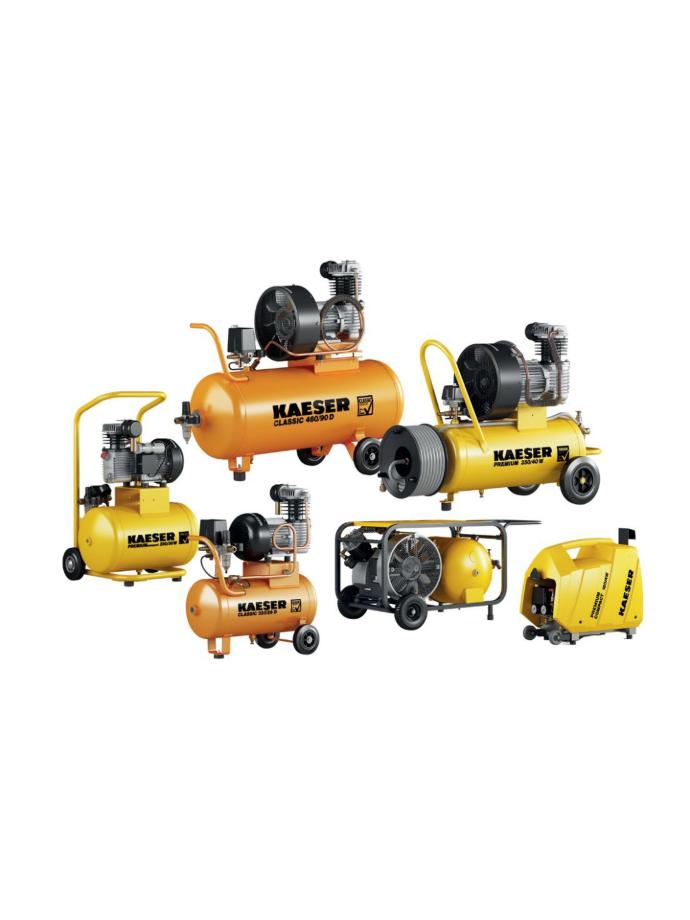TÜV Inspection of Piston Compressors: Safety, Efficiency, and Legal Requirements
Piston compressors are indispensable in workshops, production facilities, and on construction sites. They reliably supply compressed air for machines and tools. Pressure vessels on piston compressors are also subject to mandatory inspection, as they are classified as systems requiring monitoring according to the German Industrial Safety Ordinance (BetrSichV) and the German Pressure Equipment Directive (PED) and present an increased hazard potential due to fluctuating pressure and load conditions. Furthermore, corrosion, material damage, and defects in safety-relevant components can significantly impair operational safety. This is precisely why TÜV inspection is required by law.
What does this mean specifically for the operator?
Compressors operate at high pressures, which can cause serious damage in the event of a failure. Safety valves, welds, and condensate drains are typical weak points that must be inspected regularly. Therefore, pressure vessels in mobile systems must be considered as part of the risk assessment. TÜV testing is therefore not a formality, but crucial for operational safety.
It should be noted that, in addition to the ZÜS inspection, a qualified person may also perform certain regular inspections. This particularly applies to ongoing inspections, which are carried out in addition to the legally prescribed inspection intervals.
It offers three key benefits:
- Protection of employees and equipment, as hazards are identified early
- Legal compliance, as statutory requirements are met
- No unplanned downtime, as defects and downtimes are avoided
What types of testing are there and how often do they need to be performed?
Essentially, there are three types of inspections.
- The external inspection takes place every two years and focuses on visible damage or corrosion.
- The internal inspection is performed approximately every five years: here, the inspector opens the vessel, examines the wall thickness, and checks hard-to-see areas.
- The strength test is usually performed every ten years. The vessel is filled with water and then subjected to an increased test pressure to demonstrate its load-bearing capacity. The exact intervals always depend on the pressure, volume, and use of the system.
The exact intervals always depend on the pressure, volume, and use of the system. Commercial operators are subject to particularly strict requirements regarding documentation and traceability of the inspections.

What requirements apply to stationary piston compressors?
Stationary compressors are usually large-volume and run for many hours a day. Inspectors pay particular attention to:
- the condition of the pressure vessel
- the welds
- the function of the safety valves
- the pressure gauges
- and the pressure switch settings.
The installation location is also relevant: Rooms must be adequately ventilated to avoid overheating. Condensate management is particularly critical. If the water in the tank is not drained regularly, rust can form, which dangerously reduces the wall thickness.
How are pressure vessels permanently attached to machines inspected?
Special rules apply to integrated vessels, e.g., in CNC systems or packaging machines. These vessels are not considered in isolation, but are inspected as part of the overall machine system. Since they are often difficult to access, inspectors rely on non-destructive testing methods such as ultrasonic measurements or endoscopy. Inspection intervals are based less on fixed time intervals and more on operating hours and load cycles. All results are documented in the machine logbook.
CONCLUSION
How can operators stay on the safe side in the long term?
Operators should regularly inspect compressors themselves, drain condensate, check safety valves, and digitally document all maintenance. Safety-relevant spare parts should be in stock, and employees should be trained to identify hazards early on. TÜV testing forms the basis for safe operation. Continuously inspecting, maintaining, and documenting systems extends their service life, prevents breakdowns, and protects employees and operations. The responsibility for compliance with all inspection and monitoring obligations always lies with the operator.
Wie FILCOM Betreiber bei der TÜV-Prüfung unterstützt!
With many years of experience in compressed air technology, we support companies in operating their piston compressors safely and in compliance with the law.
- Consulting and risk assessment: We help classify your systems and determine appropriate inspection intervals.
- Preparation for TÜV inspections: Our experts inspect your compressors in advance to avoid complaints.
- Maintenance and service: Through regular inspections and the replacement of safety-relevant components, we ensure that your system is ready for use at all times.
- Documentation support: We ensure that all documentation is complete and available at all times – a crucial aspect of every inspection.
This turns a legal requirement into clear added value: for greater safety and a longer service life for your systems.

About the author
Wilfried Leitenberger ist Geschäftsführer bei der FILCOM GmbH und langjähriger Spezialist für Drucklufttechnik und Arbeitssicherheit. Er begleitet seit vielen Jahren Kunden bei der Umsetzung der gesetzlichen Vorgaben und der Vorbereitung auf TÜV-Prüfungen. Durch seine praxisnahe Beratung kennt er die Herausforderungen im Alltag von Handwerksbetrieben und Industrieunternehmen und vermittelt komplexe Themen klar und verständlich.

Wilfried Leitenberger
Managing Director FILCOM GmbH
- w.leitenberger@filcom.de
- +49 711 441 33 22 - 51